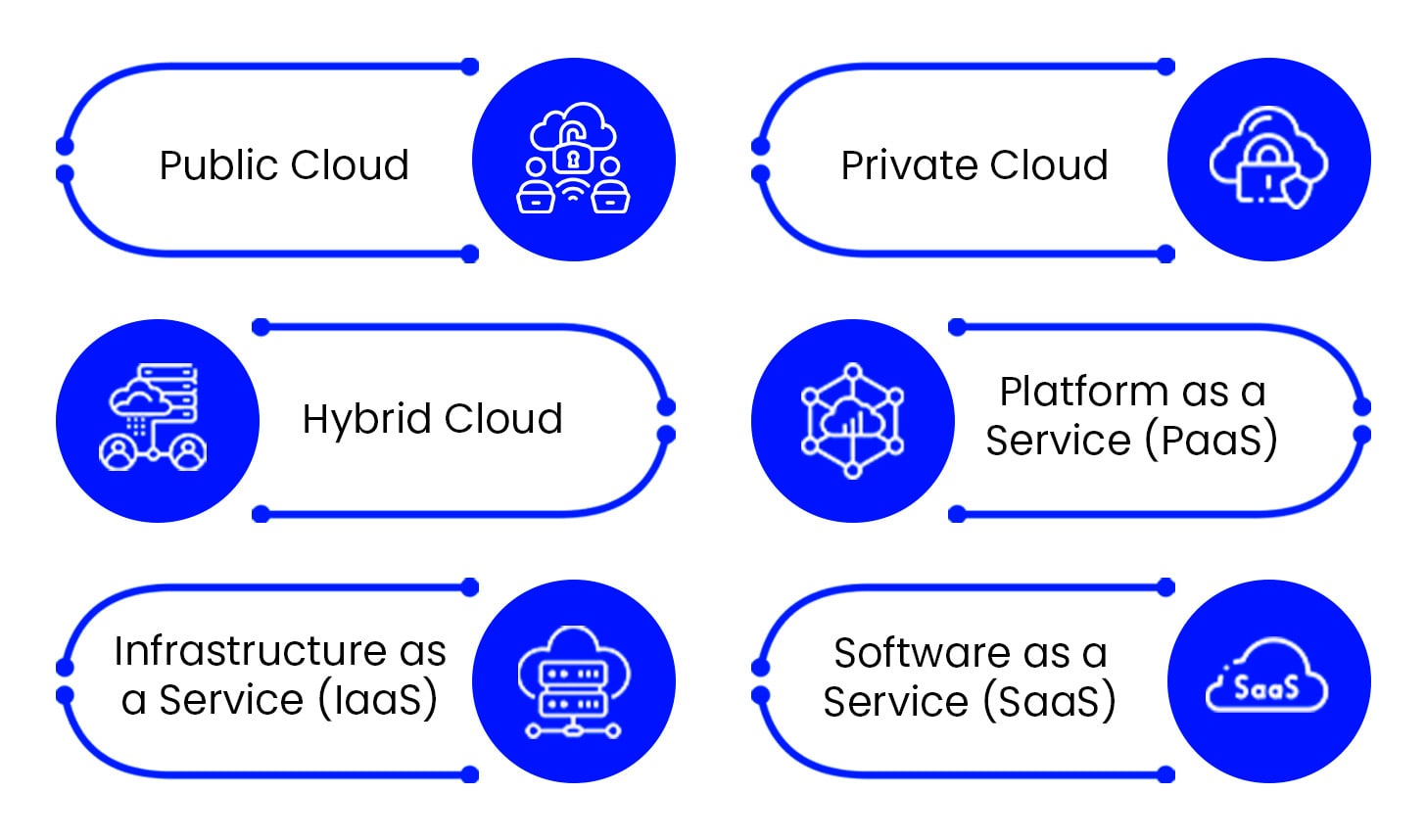Demystifying Cloud Computing Platforms – Which is suitable when?
June 16, 2023
In today’s digital era, cloud computing platforms are offering essential technological advancements that are revolutionizing the way businesses operate. To delve better into cloud computing, we need to understand the concept of cloud computing services. This article discusses the key concepts of cloud computing platforms, and their operational mechanisms and outlines their necessity.
Cloud computing platforms provide easy access to consumer systems on-demand and without the user’s direct management. These resources are hosted on widespread networks across various locations, functioning as data centres. This innovative approach allows you to provide cloud computing services through remote platforms that are accessible via the internet, offering better flexibility and seamless transition.

Cloud computing types include public cloud, private cloud, and hybrid cloud. Here is what each one of them caters to:
- Public Cloud
Public Clouds are operated by 3rd party companies (cloud owners), in internet-accessible environments to manage the delivery of computing resources to users.
- Private Cloud
With private clouds, you get restricted access which allows the organization to manage the data center itself.
- Hybrid Cloud
Hybrid Cloud is a mixture of public and private cloud which allows the organization to manage some of its services itself whereas the rest of the services are managed on public cloud like AWS and Azure.
Cloud Computing Platforms offer a range of diverse services, including Software-as-a-Service (SaaS), Infrastructure-as-a-Service (IaaS), and Platform-as-a-Service (PaaS).
- Platform as a Service (PaaS)
PaaS is a cloud computing model that empowers customers with a comprehensive cloud platform for the purpose of application development.
- Infrastructure as a Service (IaaS)
IaaS is a type of cloud computing service which enables customers to have access to individual resources on-demand, enabling them to pay for the services they require only.
- Software as a Service (SaaS)
With SaaS, you get online access to applications, eliminating the need to purchase, install or maintain the software locally. This allows you to simply use the hosted software via a subscription.
As organizations contemplate the ideal cloud computing platform for their needs, it becomes crucial to comprehend the advantages and disadvantages associated with each type.
Each of the three types of cloud computing platforms offers its distinct advantages. Startups and small businesses often lean towards PaaS due to its cost-effectiveness and ability to enable companies to concentrate on their core expertise while expediting the application development process. Moreover, PaaS is deemed future-proof, granting companies access to cutting-edge cloud computing services to enhance their systems continually.
Like PaaS, IaaS is also recognized for its cost-efficiency as it eliminates the burden of monthly or annual fees. It offers scalable solutions tailored to address specific needs, ensuring that companies only pay for the resources they utilize.
Among all, SaaS stands as the most widely adopted option. By utilizing pre-installed and configured software, companies can save time and cut costs significantly. Additionally, the provider takes care of software upgrades, making them readily available to customers. The user-friendly nature of SaaS further enhances its appeal to businesses.
Also read: 7 ways a cloud computing assessment helps you control costs
Each of the three cloud computing platforms provides a wide array of advantages. What may be suitable for one organization might not be necessary for another. It is essential for each organization to thoroughly assess its specific needs and business objectives before making a decision.
Final Take
There is no one-size-fits-all approach, even though all three types of cloud computing services fundamentally offer remote storage. What suits one organization might not be needed for another organization. Each organization should carefully analyze its needs and the objectives of its business before choosing.
We do not stop there… our cloud computing consultants will work with you to implement your cloud-first strategy a roaring success. Get in touch with us today.
Quick Link
You may like
How can we help you?
Are you ready to push boundaries and explore new frontiers of innovation?



